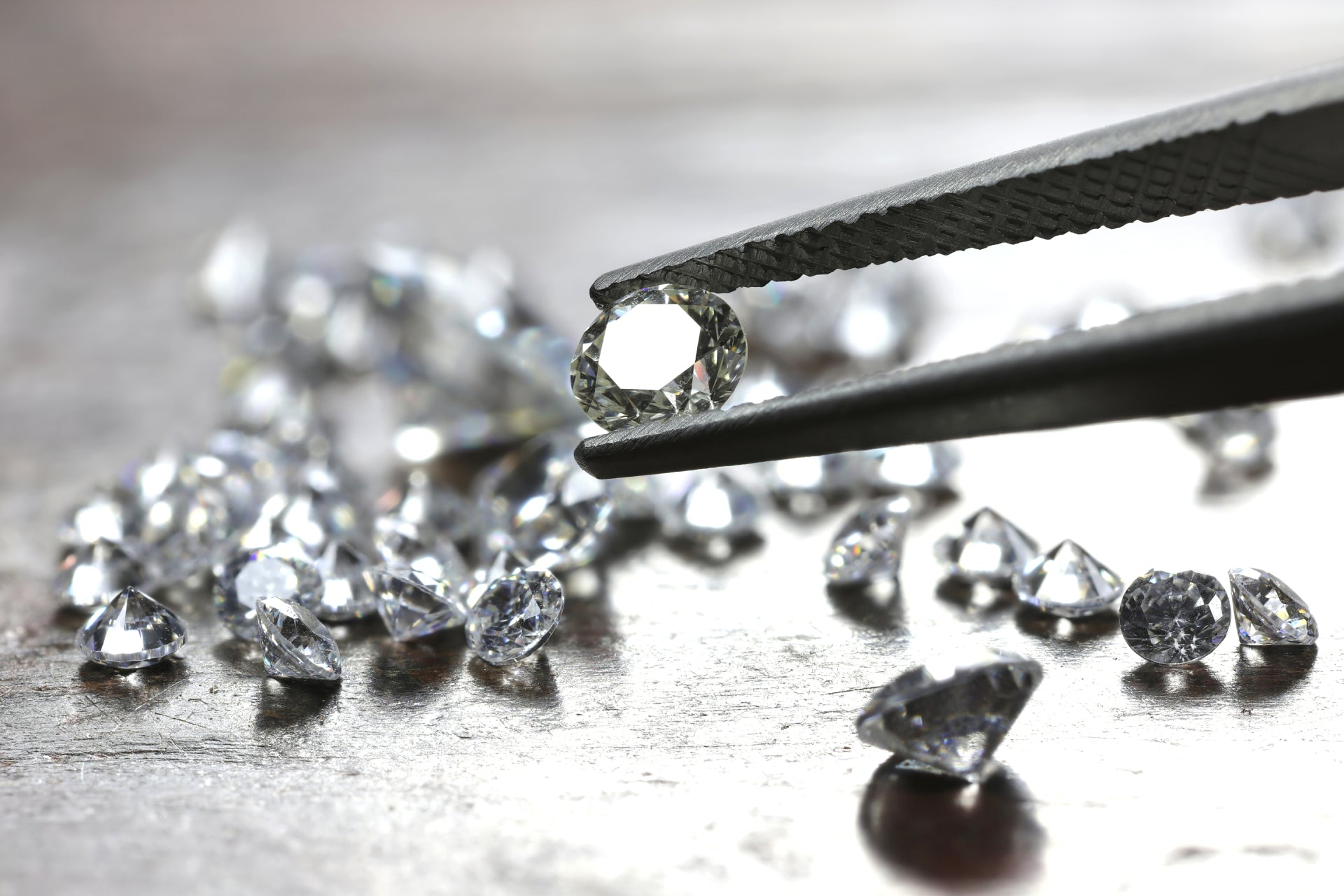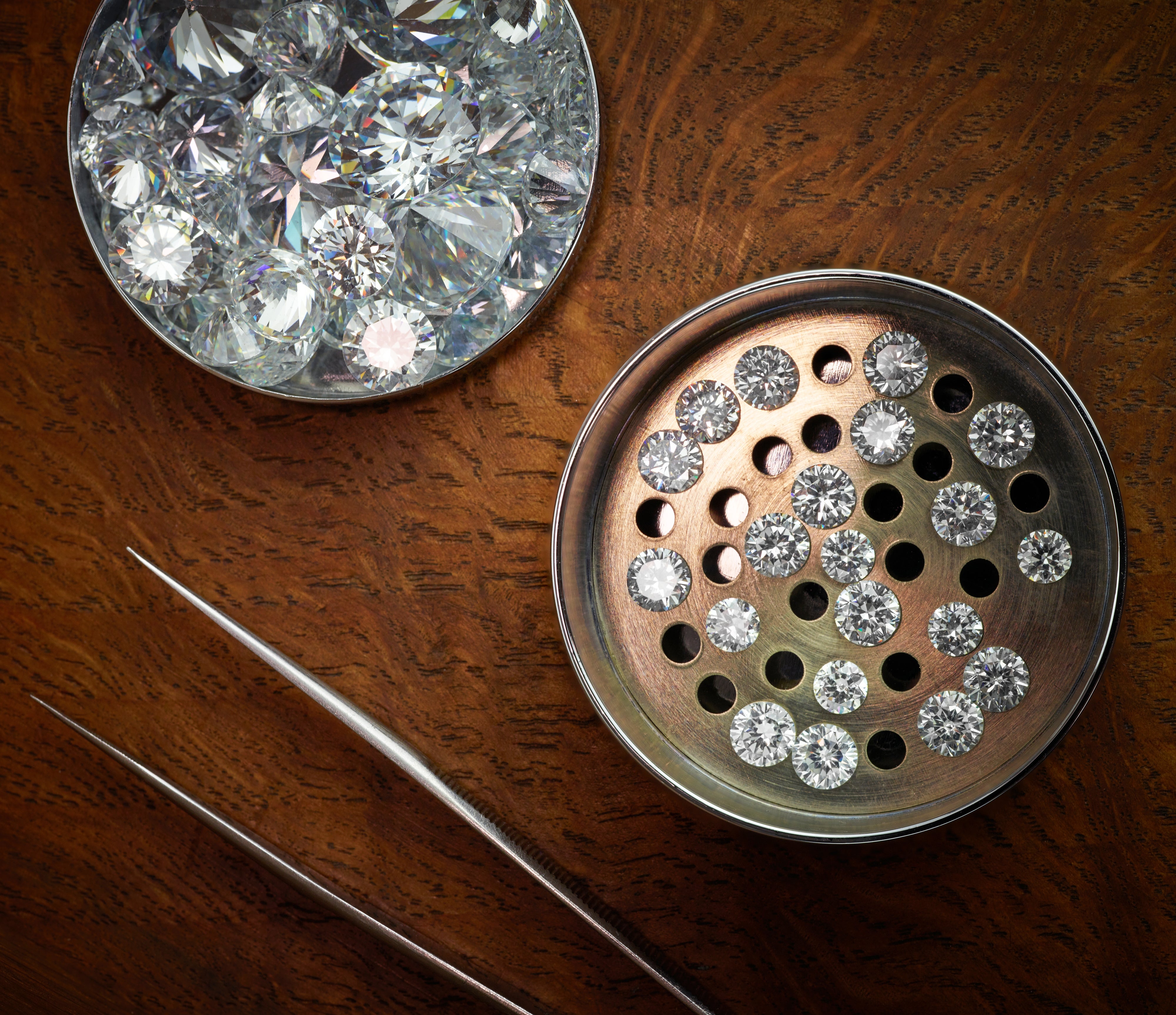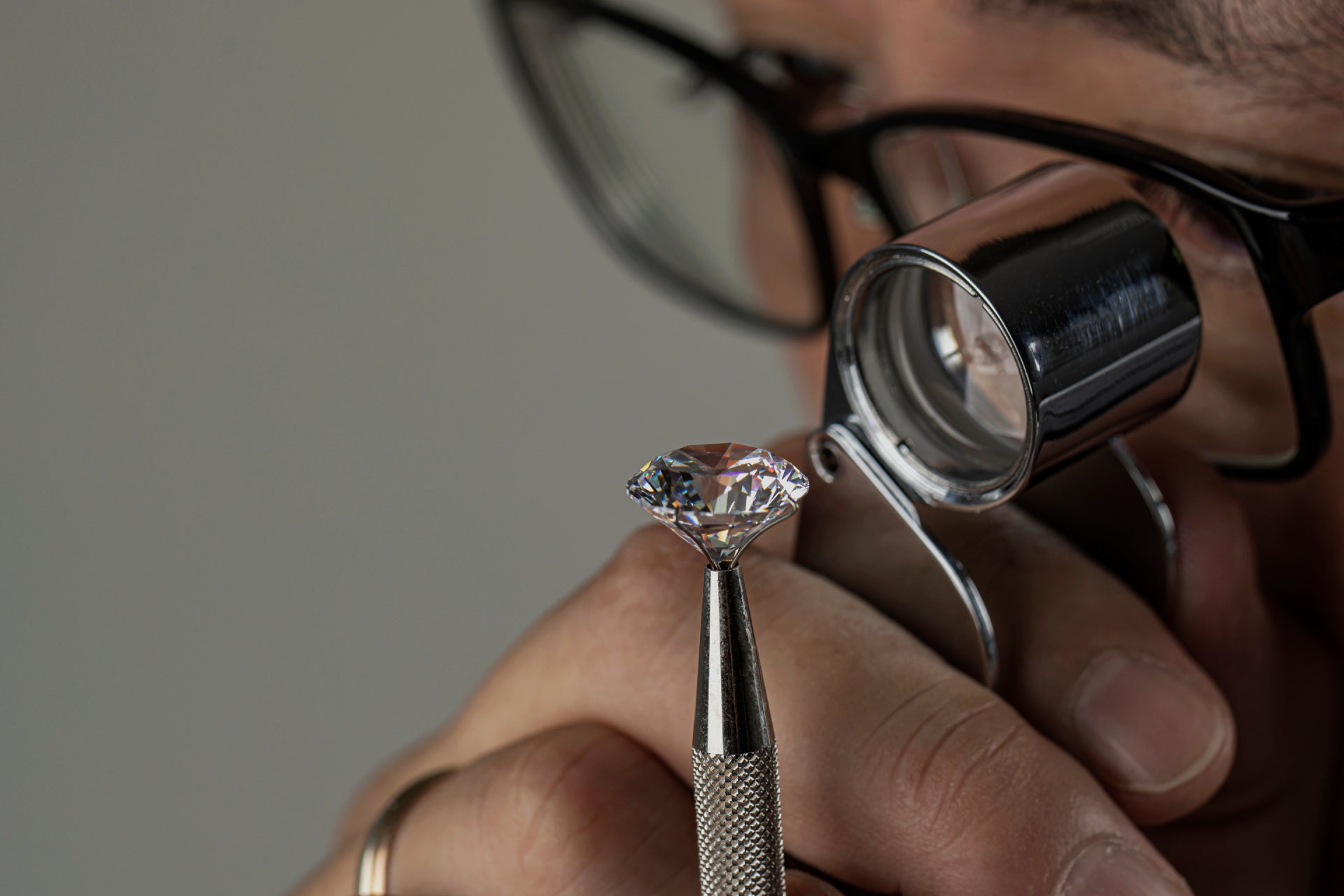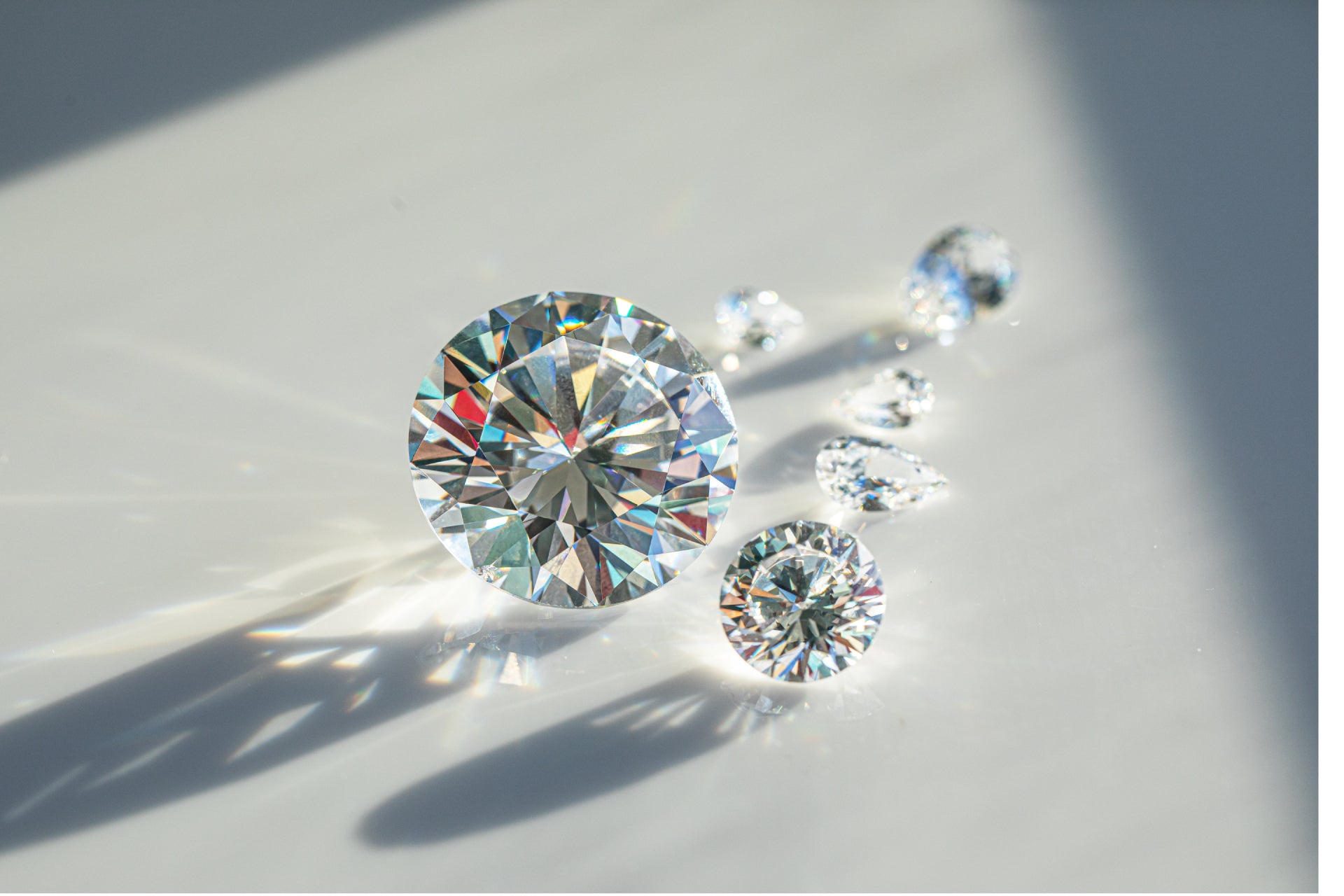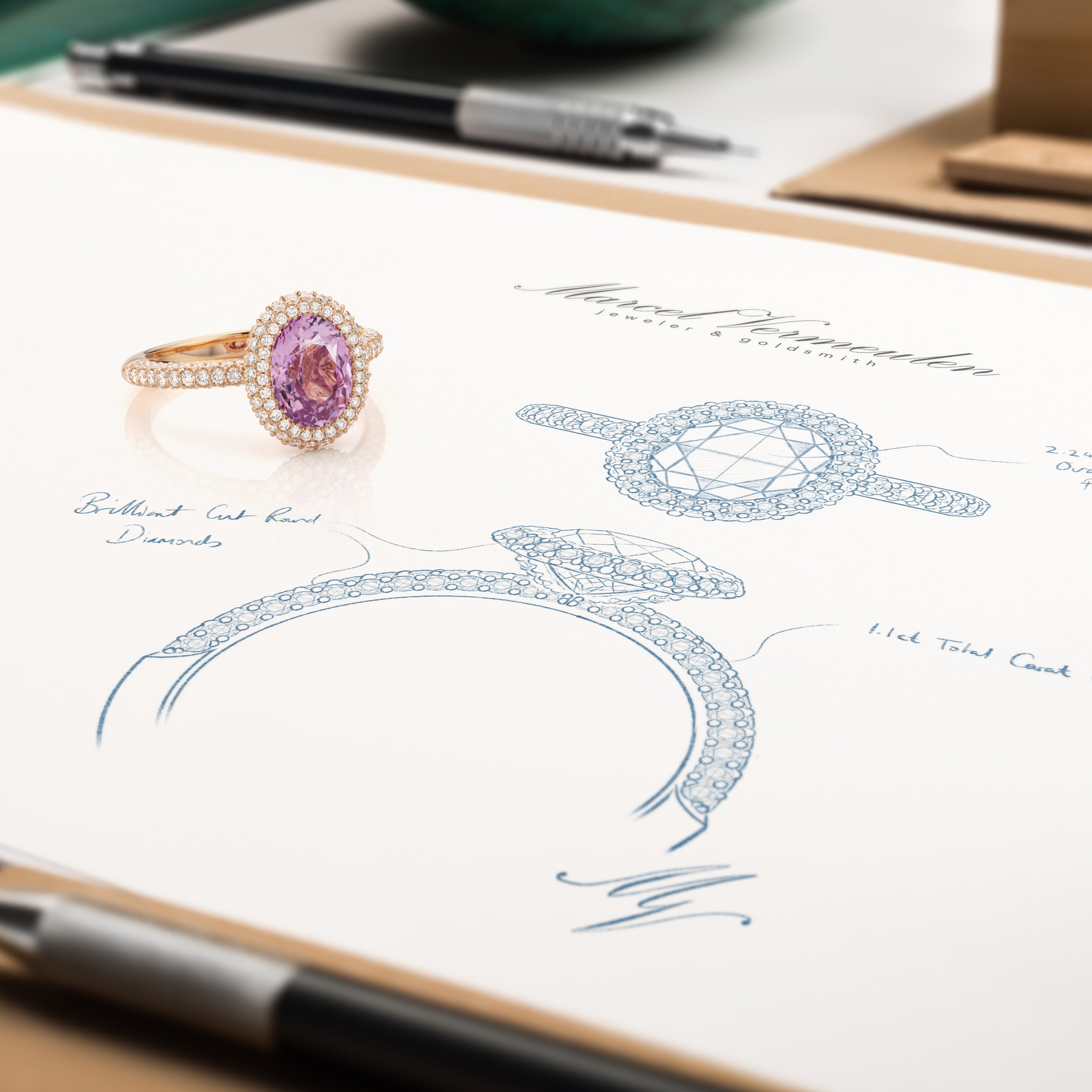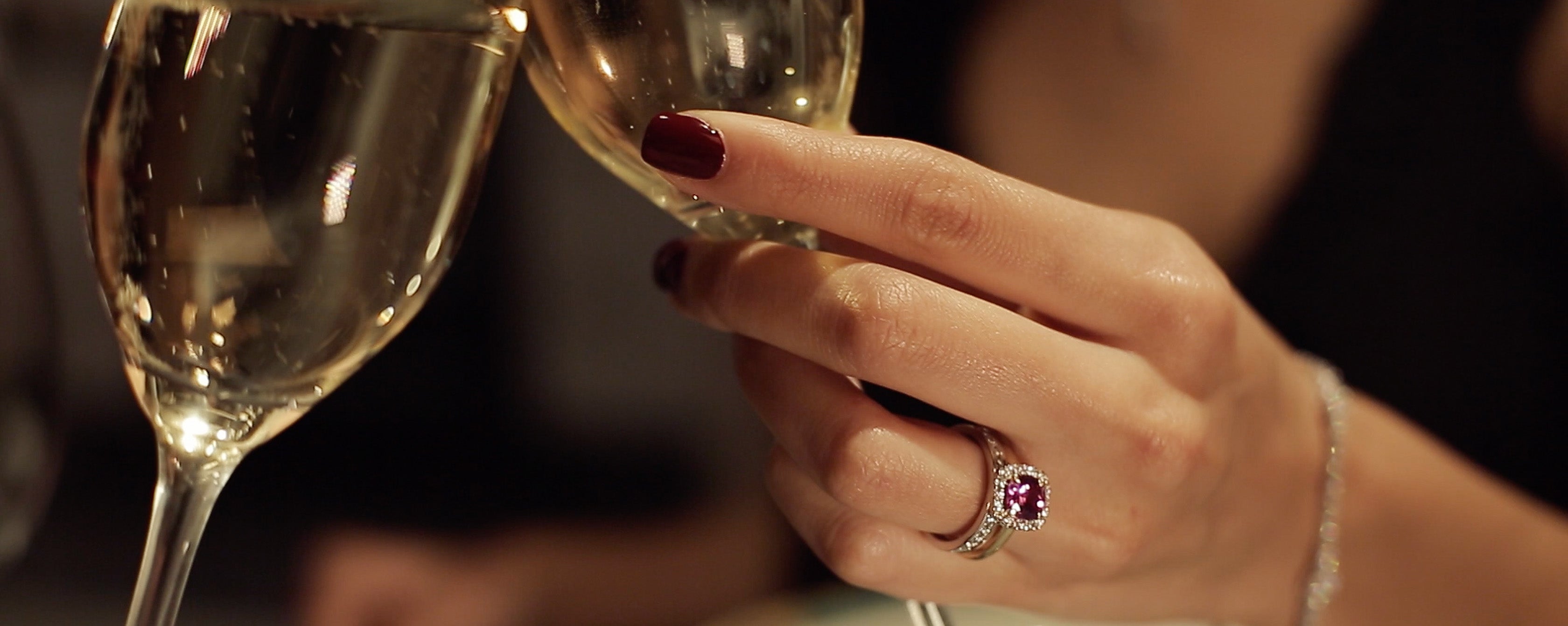Types of Precious Metal
You want a unique piece of jewelry that you can wear for the rest of your life. Or you want to give a piece of jewelery as a gift to your partner/mother/sister/brother or other loved one.
Most likely there is a preference for the color of the precious metal.
We work with white, rose, yellow gold and platinum. Gold is our preference. Why we like to explain:
Gold
As a durable element, gold is resistant to rust, tarnishing and corrosion.
We use 18k and 14k gold for our jewelry.
18k gold consists of 75% gold, alloyed with other metals.
14k gold consists of 58.3% gold and 41.7% other metals.
For white gold we use palladium as an alloy so that an allergic reaction can never occur (unlike nickel).
Platinum
Platinum is a popular metal for engagement and wedding rings.
Platinum is 30 times rarer than gold. The platinum we work with, only on request, is 95% pure (the 5% alloy consists of iridium, palladium, ruthenium and other alloys). Platinum's purity makes it naturally hypoallergenic, making it ideal for people with sensitive skin.
We do not necessarily recommend platinum. Although it is the most durable choice among jewelry metals, platinum is much more likely to scratch from wear.
A platinum ring therefore looks matte and gray faster than, for example, white gold. If you have fallen for the shine and reflection of a new ring, we will always advise gold.
Patina advantages:
- It is very durable and the material hardly wears out
- Ideal for people with sensitive skin (read allergies)
Platinum Negatives:
- It is soft and therefore bends quickly. A round ring can therefore quickly become oval and an elegant slim setting can bend, causing the gemstone in the ring to become loose.
- Because it is a soft material it scratches quickly and the appearance quickly becomes matte and greyish

